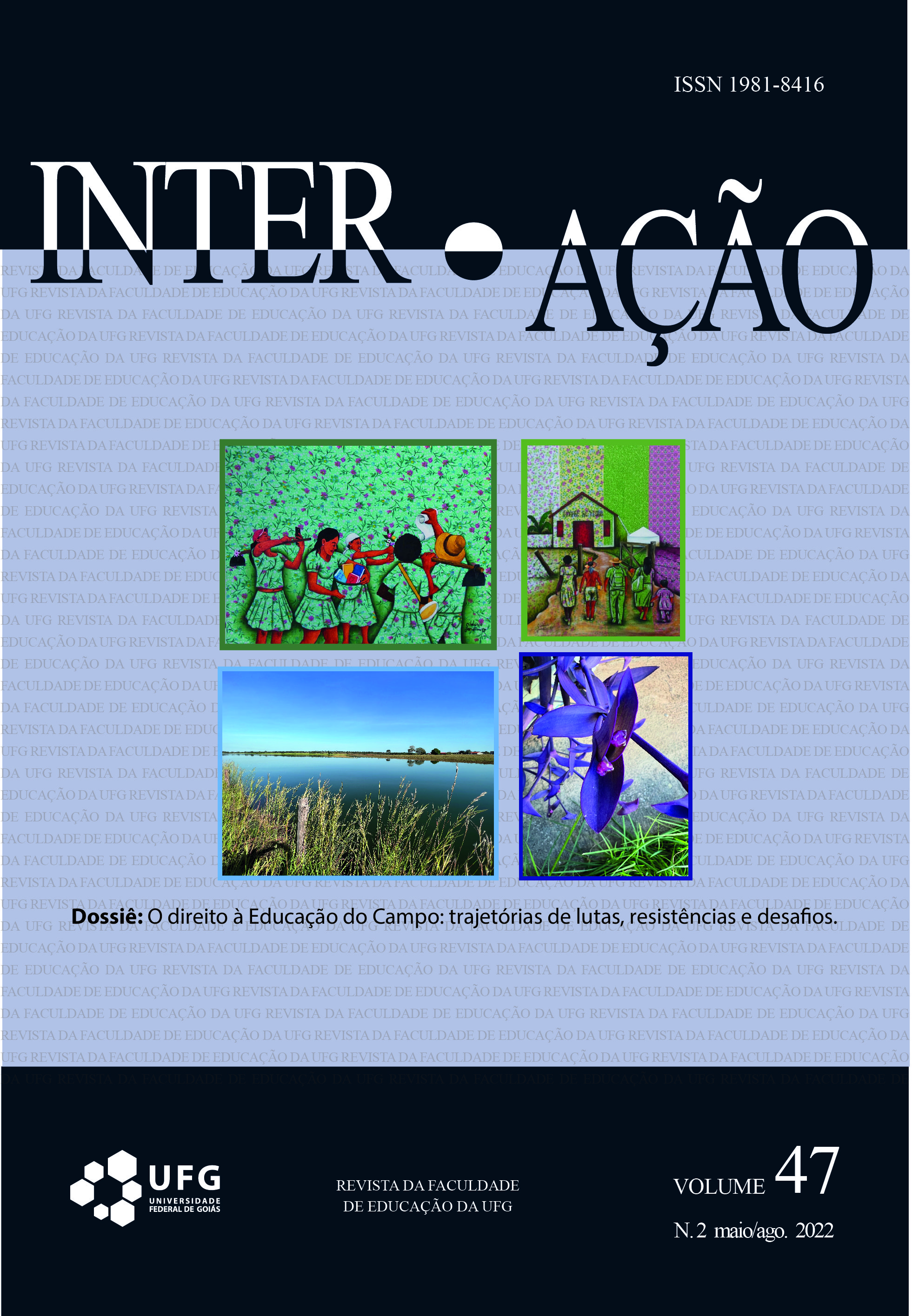REPRESENTAÇÕES SOCIAIS DE PROFESSORES DE PEDAGOGIA SOBRE SUAS PRÁTICAS PEDAGÓGICAS: O SENTIDO DE MODELO
DOI:
https://doi.org/10.5216/ia.v47i2.71363Resumo
Esta pesquisa teve como objetivo conhecer as representações sociais de professores de Pedagogia sobre suas práticas pedagógicas. Norteada pela Teoria das Representações Sociais associada à Teoria da Argumentação, a pesquisa contou com a participação de dez professores de Pedagogia de uma universidade privada, na cidade de Petrópolis. Os dados foram coletados por meio de entrevistas semiestruturadas e induções de metáforas, e foram analisados segundo o Modelo da Estratégia Argumentativa. Os resultados mostram que as representações sociais dos sujeitos sobre suas práticas pedagógicas se objetivam em “modelo” e se ancoram na crença de que a vivência na Escola Básica fornece os requisitos necessários para ser um formador de professores. Conclui-se que os sujeitos representam suas práticas pedagógicas por uma perspectiva utilitarista.
PALAVRAS-CHAVE: Representações Sociais. Formação Docente. Prática Pedagógica. Professores de Pedagogia.
Downloads
Publicado
Como Citar
Edição
Seção
Licença
Copyright (c) 2022 Silvio Duarte Domingos, Clara Corrêa da Costa

Este trabalho está licenciado sob uma licença Creative Commons Attribution-NonCommercial 4.0 International License.
A Inter-Ação utiliza como base para transferência de direitos a licença Creative Commons Attribution 4.0 para periódicos de acesso aberto (Open Archives Iniciative - OAI). Por acesso aberto entende-se a disponibilização gratuita na Internet, para que os usuários possam ler, baixar, copiar, distribuir, imprimir, pesquisar ou referenciar o texto integral dos documentos, processá-los para indexação, utilizá-los como dados de entrada de programas para softwares, ou usá-los para qualquer outro propósito legal, sem barreira financeira, legal ou técnica.
Autores que publicam neste periódico concordam com os seguintes termos:
1) Autores mantém os direitos autorais e concedem à revista o direito de primeira publicação, com o trabalho simultaneamente licenciado sob a Licença Creative Commons Attribution que permite o compartilhamento do trabalho com reconhecimento da autoria e publicação inicial nesta revista.
2) Autores têm autorização para assumir contratos adicionais separadamente, para distribuição não-exclusiva da versão do trabalho publicada nesta revista (ex.: publicar em repositório institucional ou como capítulo de livro), com reconhecimento de autoria e publicação inicial nesta revista.
3) Autores têm permissão e são estimulados a publicar e distribuir seu trabalho online (ex.: em repositórios institucionais ou na sua página pessoal) a qualquer ponto antes ou durante o processo editorial, já que isso pode gerar alterações produtivas, bem como aumentar o impacto e a citação do trabalho publicado.















